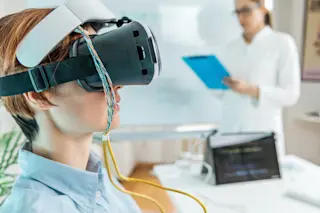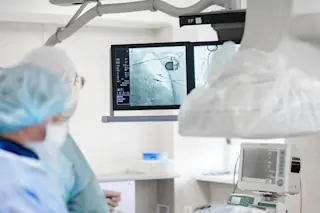Horror stories abound about patients given general anesthesia who claim they were in fact awake during surgery---and of course it's everyone's worst nightmare. Brain states are routinely monitored during surgery for this very purpose, but new research finds that a more precise method of analyzing brain waves could better detect when people are and aren't conscious under anesthesia. A group of researchers from MIT and Massachusetts General Hospital administered propofol (the most widely used anesthetic drug) to healthy volunteers. The researchers attached electrodes to participants' scalps and hooked them up to an electroencephalogram (EEG) machine. This set-up recorded the patterns of electrical activity tied to brain function as the participants experienced the stages of general anesthesia: unconsciousness, amnesia, analgesia, and immobility with physiological stability.
Researchers measured patients' responsiveness to audible cues like mechanical clicks and spoken words. The volunteers pushed a button every time they heard a sound. Researchers also ...













